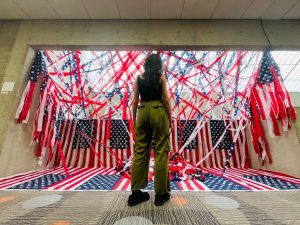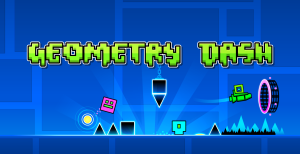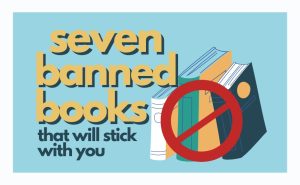73 years later, still not over
January 25, 2018
If I asked when the Holocaust ended, chances are the average person wouldn’t be able to answer my question.
If I asked when the remembrance day is every year, they probably wouldn’t be able to answer that either, let alone be able to answer what antisemitism even means.
According to my great-aunt, the reason people don’t know the answer to these three questions boils down to one word: ignorance.
The Holocaust ended 73 years ago after 17 million people fell victim to the hate and antisemitism that encompassed Europe— six million of them were Jews.
It’s an event that my aunt says “we should never forget, because it’s still not over.”
A lot of people in this age might not think that the Holocaust has anything to do with them, but Jewish or not you should remember.
Even as someone with Jewish heritage, I never enjoyed learning or reading about the Holocaust. Maybe I was afraid to know the truth behind the monstrous and spine-chilling acts human beings could perform to innocent other human beings.
However, I just recently had to read the book “The Holocaust Project: From Darkness into Light” by Judy Chicago for my art history class.
With every turn of a page I felt I had a one-way ticket into an emotional overload about the Holocaust that I never knew I needed to know, or maybe didn’t want to know.
By definition: antisemitism is hostility to, prejudice, or discrimination against Jews.
After reading about Chicago’s experience I realized the amount of times I had experienced such a hatred and prejudice in my life.
The first time, it was in middle school, and I was too young to understand what it was or why their hateful words cut into me like knives.
The second time, I was in high school.
It was my best friend who made the comments. I didn’t want to admit that someone close to me could look me straight in the eyes and make Holocaust jokes.
But I realize now, especially after reading this book, that this was antisemitism. It was hate.
I remember when I called my great-aunt to talk about the Holocaust, she was horrified by this information.
She told me she feels that she is lucky to have escaped it.
Living in a Jewish community in New York, she didn’t have to worry about the “small town ignorance.”
“Prejudiced parents raise prejudiced children,” she said. “Then they raise prejudiced children and it continues.”
What shocked me is how we still live in a time where you are classified as being “lucky” for not experiencing discrimination.
My great-grandmother experienced it in a small little town in Missouri.
My father and grandmother experienced it in England.
We all still experience it today.
Some of my family members don’t even tell other people that they are Jewish and try to avoid it.
I find it hard to talk about, out of a fear of a repeat of what has happened in the past with some of my closest friends.
When talking to my parents about religion, I mentioned that I wanted to become stronger in my Jewish faith.
My father asked me if I knew what would come from that, and I don’t think I’ve ever realized until now how bad things still are.
Once in my childhood, I went to a friend’s house to hang out. When I got there, her father told me he needed to save me so I wouldn’t go to hell.
As a young child, this was terrifying. I somewhat agreed to be “saved” which turned out to be me standing in their living room while he said some type of prayer and then called it a day.
He probably felt like a hero, but I felt sick.
These memories are things that stick with you.
They make you feel upset and confused.
I still sometimes wonder if these things actually happened because they seem so outlandish. I guess you could say denial.
I hope that one day, the effects of the Holocaust won’t be as prominent and people become more educated.
This Saturday, take a minute to remember the Holocaust. remember the struggle that 17 million people went through.
We can never forget.







